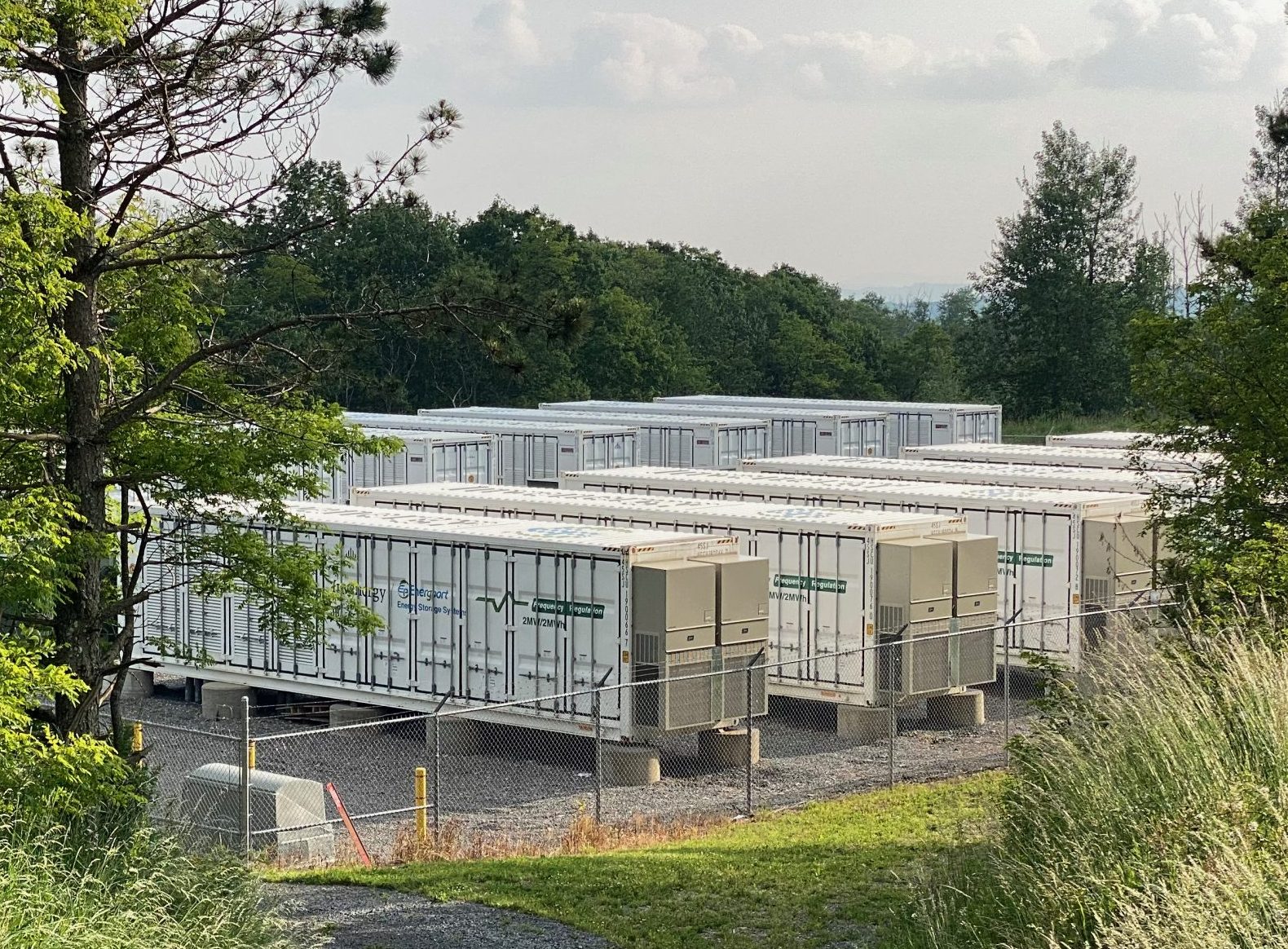CENTRE WELLINGTON – The Wellington Federation of Agriculture (WFA) is raising concerns to municipalities about recent proposals within the county for battery energy storage facilities.
The batteries are assembled in modular units within containers, similar to a shipping container, constructed on concrete pads, and are connected to the electrical grid.
One of those facilities is being proposed for 13 acres of agriculturally-zoned land near Belwood, on Wellington Road 18, between 5th and 6th Lines.
Another in Centre Wellington is proposed south of Fergus by Aypa Power.
Past WFA president and Centre Wellington dairy farmer Janet Harrop said the federation is calling attention to the potential loss of farmland from the proposed projects through a letter to the county, its municipalities and provincial politicians.
“They should not be located on prime agricultural land,” Harrop said of the facilities, adding that even if rural land isn’t actively being farmed, it continues to have potential and sequester carbon.
“Not all prime agricultural land is just used for cropping. It has a lot of other benefits as well.”
To be sent out next week, the letter contains eight suggestions from the Ontario Federation of Agriculture’s energy storage committee.
In addition to suggesting ways to address fire and safety concerns, it calls for the protection of farmland through environmental approvals and land-use policies.
“Step one should be to protect farmland and exercise all alternative options prior to sitting on agricultural land,” states the letter, signed by WFA president Barclay Nap.
The letter advocates for:
- an environmental approval process;
- contractual obligations for environmental restoration in the event of a battery failure or decommissioning;
- the province to focus energy infrastructure on commercial and industrial land; and
- increasing the amount of area separating the facilities from homes and livestock operations.
The seemingly abrupt activity surrounding battery facilities is being pushed by the Independent Electricity System Operator (IESO), the organization that manages power supply for the province.
It’s looking to lithium-ion batteries to address a concern the province won’t have enough power to supply demand by 2028.
The county is quickly becoming the focus of energy companies pitching battery storage projects because of proximity to electrical grid transmission lines, according to a Nov. 15 presentation on the proposal south of Belwood.
The companies behind the proposal, Alectra Utilities and U.S.-based Convergent Energy and Power, are seeking Centre Wellington’s support for the project.
Alectra government relations staffer Stefanie Bonazza plans to delegate to council on Nov. 27, according to a meeting agenda.
Though township support isn’t required, it’s worth four of the 16 total points the ISEO will use to evaluate the Alectra-Convergent proposal.
Township council can go one of two ways: either grant a “municipal council support resolution” or don’t.
Project proposals by energy companies are due to the ISEO on Dec. 12, leaving municipalities “very little time” to determine effects on planning, the economy and the environment, township economic development coordinator Sally Litchfield wrote in a report to go before council on Monday.
Litchfield also notes there’s little information on the books, provincially or locally, guiding planners on such project proposals.
They do know however that the land along Wellington Road 18 is zoned agricultural by the township, and prime agricultural by the county.
“Township staff consulted with county planning staff who report they’ve advised other municipalities that such uses should be directed away from prime agricultural land,” Litchfield wrote.
Though public utilities may get an exception to that guidance, private operations don’t, according to Litchfield’s report.
“This view is backed up by the township’s own legal advice,” she wrote.
Staff suggest a local bylaw amendment and a county official plan amendment would be needed to accommodate the project.
“Staff believe that such amendments would be difficult to support for any project located in a prime agricultural area,” Litchfield wrote.
She added a resolution of support is “premature at this point in time, given the short time to undertake an effective evaluation assessment.”
The Advertiser requested comment from the township for this story, however spokesperson Kendra Martin referred instead to Litchfield’s report.
Should the Alectra-Convergent joint venture be successful, construction on the property could begin as early as 2025 with the system coming online between 2027 and 2028.




